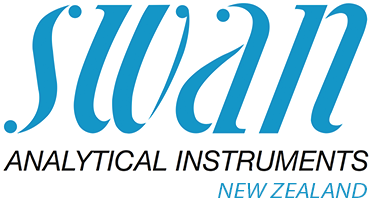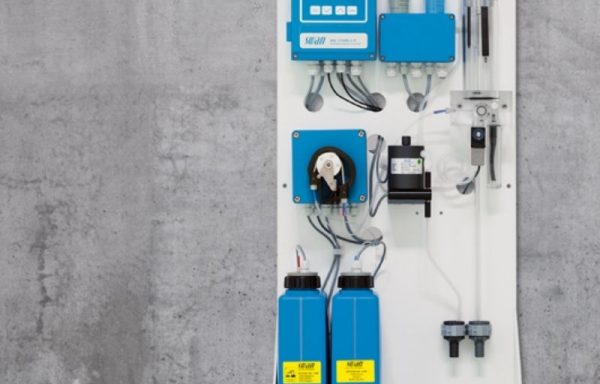Continuous Automated Safety Monitoring of Haemodialysis Water
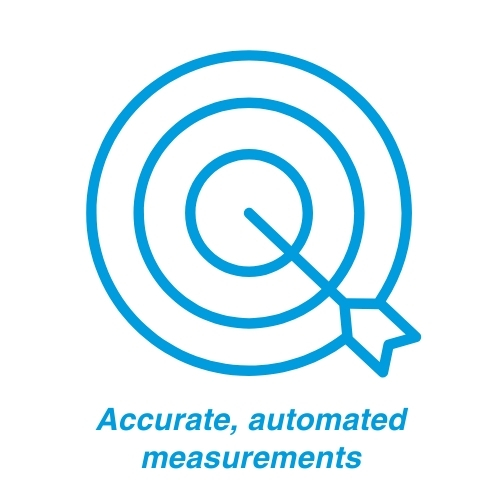
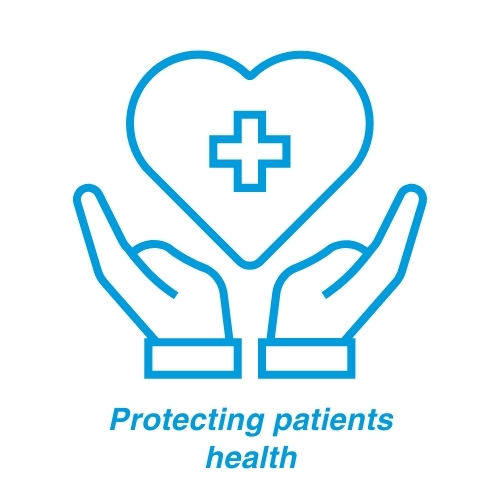
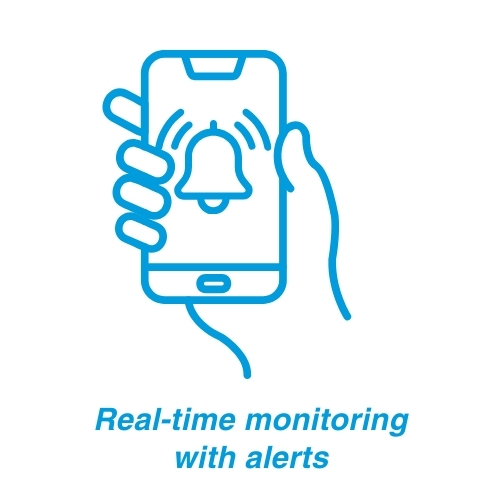

Swan Analytical Instruments’ Renal Dialysis Total Chlorine Monitor continuously monitors chloramines in dialysis water systems so that patients receive the safest water possible.
Water Testing In Renal Dialysis
Why is chlorine present in dialysis water?
Chlorine can enter dialysis water either through the municipal supply or as part of disinfection for the water and dialysis equipment. If elevated Total Chlorine levels go undetected, patients can be at risk of severe haemolytic anaemia.
Traditional chlorine testing in dialysis water
Chlorine in dialysis systems is typically measured manually by nursing staff. This process consumes valuable time, introduces potential for human error, and allows room for inconsistent interpretation of results. Manual testing also means Total Chlorine is not continuously monitored, so dangerous spikes may go unnoticed. Furthermore, research has shown that many testing kits used in renal wards lack the sensitivity to accurately detect the low chlorine concentrations present in dialysis water.
How to Accurately Test Chlorine in Dialysis Water
Swan Analytical Instruments’ Renal Dialysis Total Chlorine Monitor (Codes-II TC Analyser) provides continuous, automated monitoring of Total Chlorine in dialysis water systems. This ensures patients receive the safest water possible, eliminates the need for manual testing, and delivers reliable online data with over 1,000 measurements per week. The system also provides early warning alerts if Total Chlorine levels reach unsafe levels.
With Swan Analytical Instruments, renal ward teams can trust that their dialysis water treatment system is operating safely, protecting patients from sudden or unpredictable chlorine surges.
Benefits of using the Swan Renal Dialysis Total Chlorine Monitor
- Saving nursing staff time
- Accurate, automated quantitative measurements
- Increasing staff confidence
- No glassware or chance of contamination during testing
- Real-time warnings of possibly dangerous levels of Total Chlorine
- Accountability of Carbon#1’s performance
- Data recording and trending, ideal for audits (optional)
- Mobile device alarms (optional)
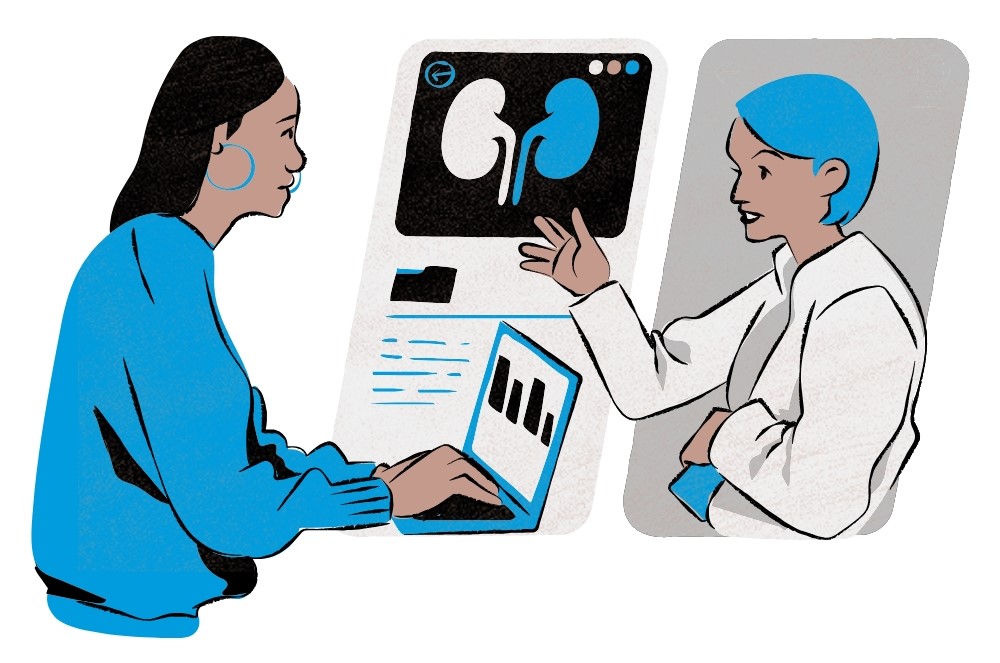
Monitor Total Chlorine after the first carbon bed. Measures 0.1ppm TC.
Total Chlorine Test for Renal Dialysis Water
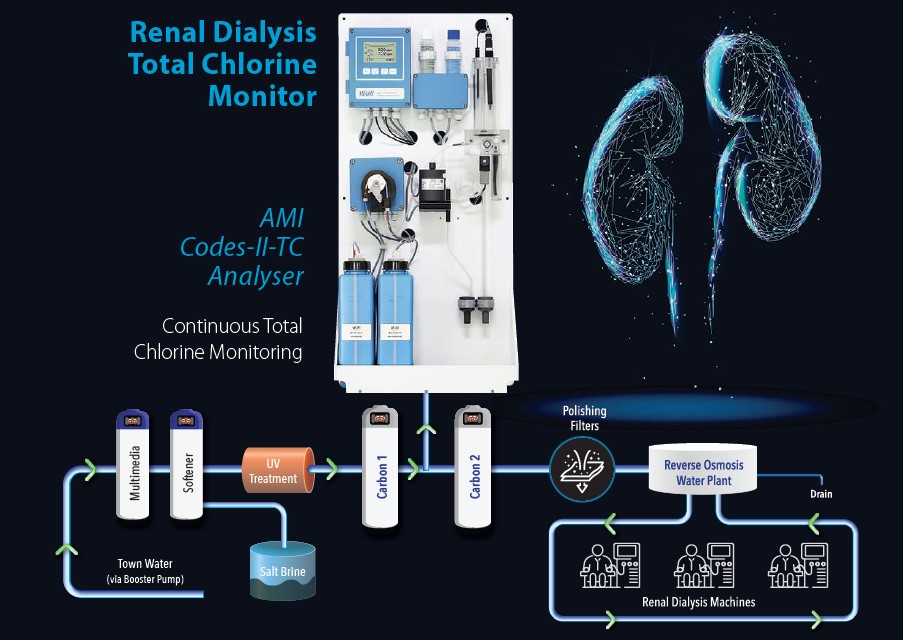
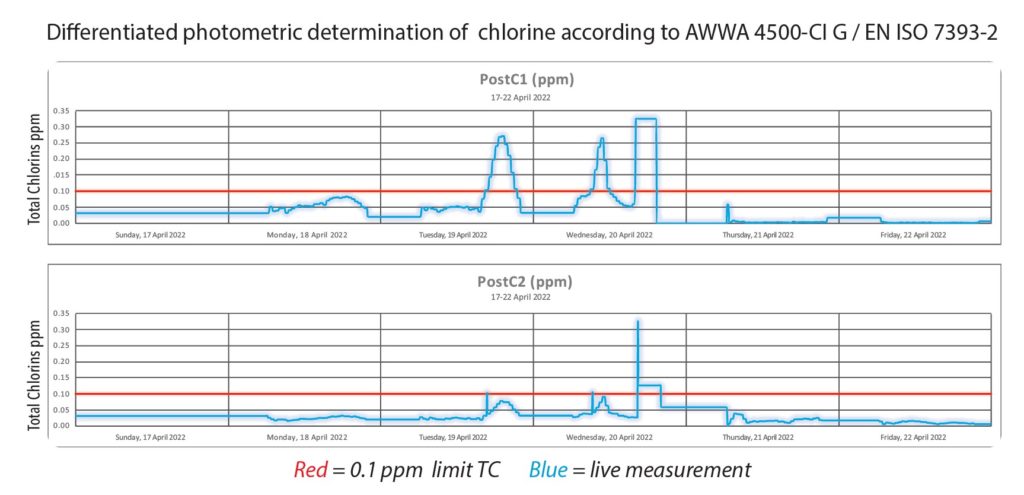
Swan Analytical Instruments provides continuous, automatic monitoring of Total Chlorine in dialysis water systems so that patients receive the safest water possible. Swan Analytical enables healthcare professionals to spend more time caring for their patients and less time doing manual chlorine tests.
Manufactured in Switzerland, Swan’s analysers have monitored high-purity water in Australian and New Zealand power stations for decades.
Now, we’re putting power in the hands of healthcare professionals!
For more information about how our Renal Dialysis Total Chlorine Monitor can help keep haemodialysis patients safe in your hospital contact our helpful team.
Swan Renal Dialysis Total Chlorine Monitor

